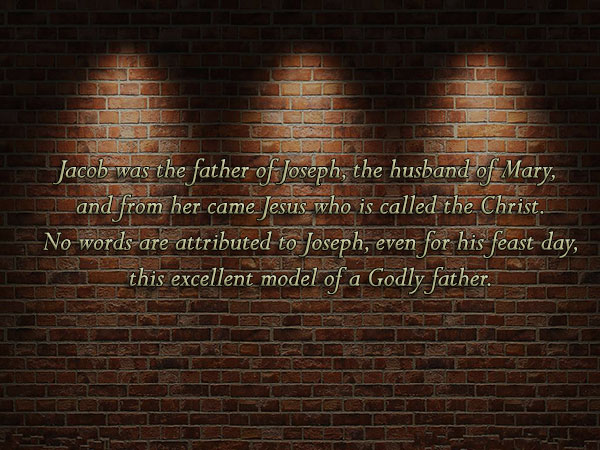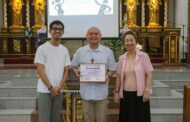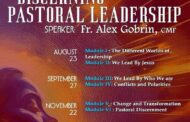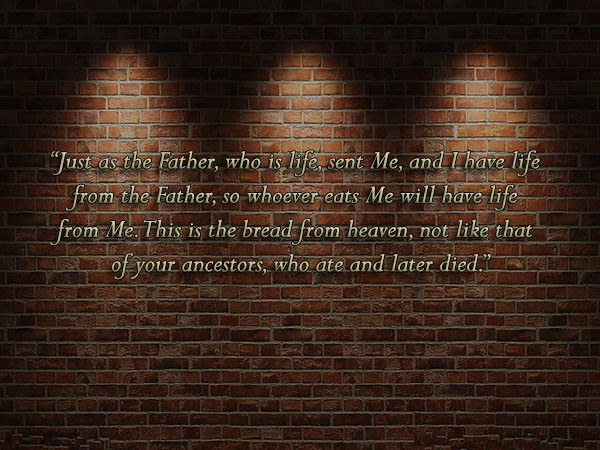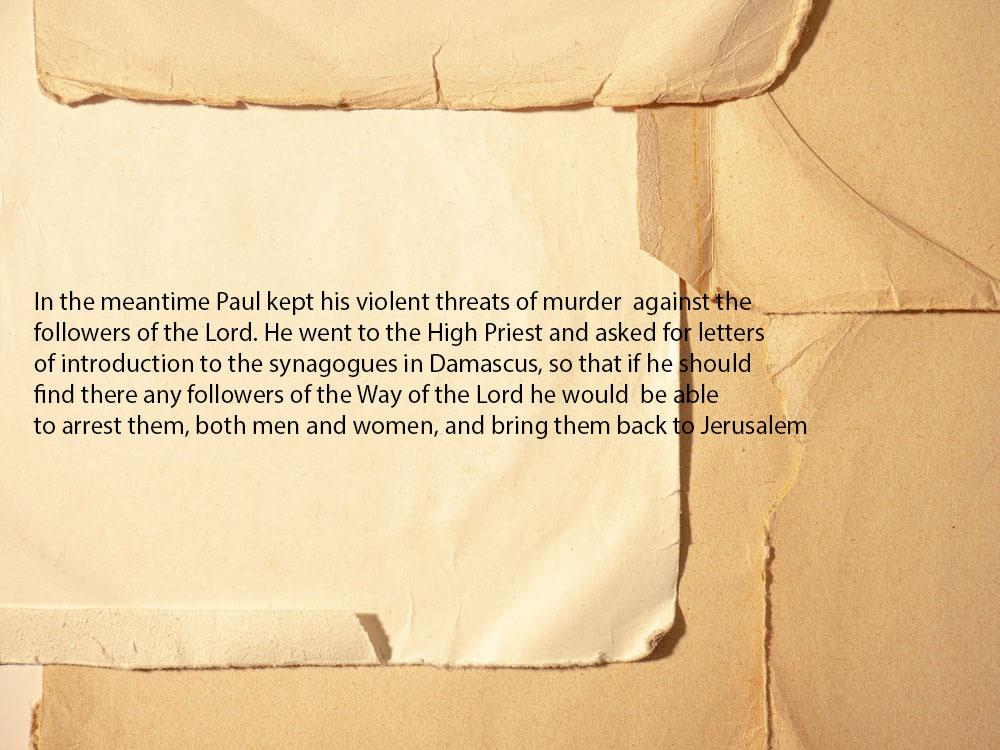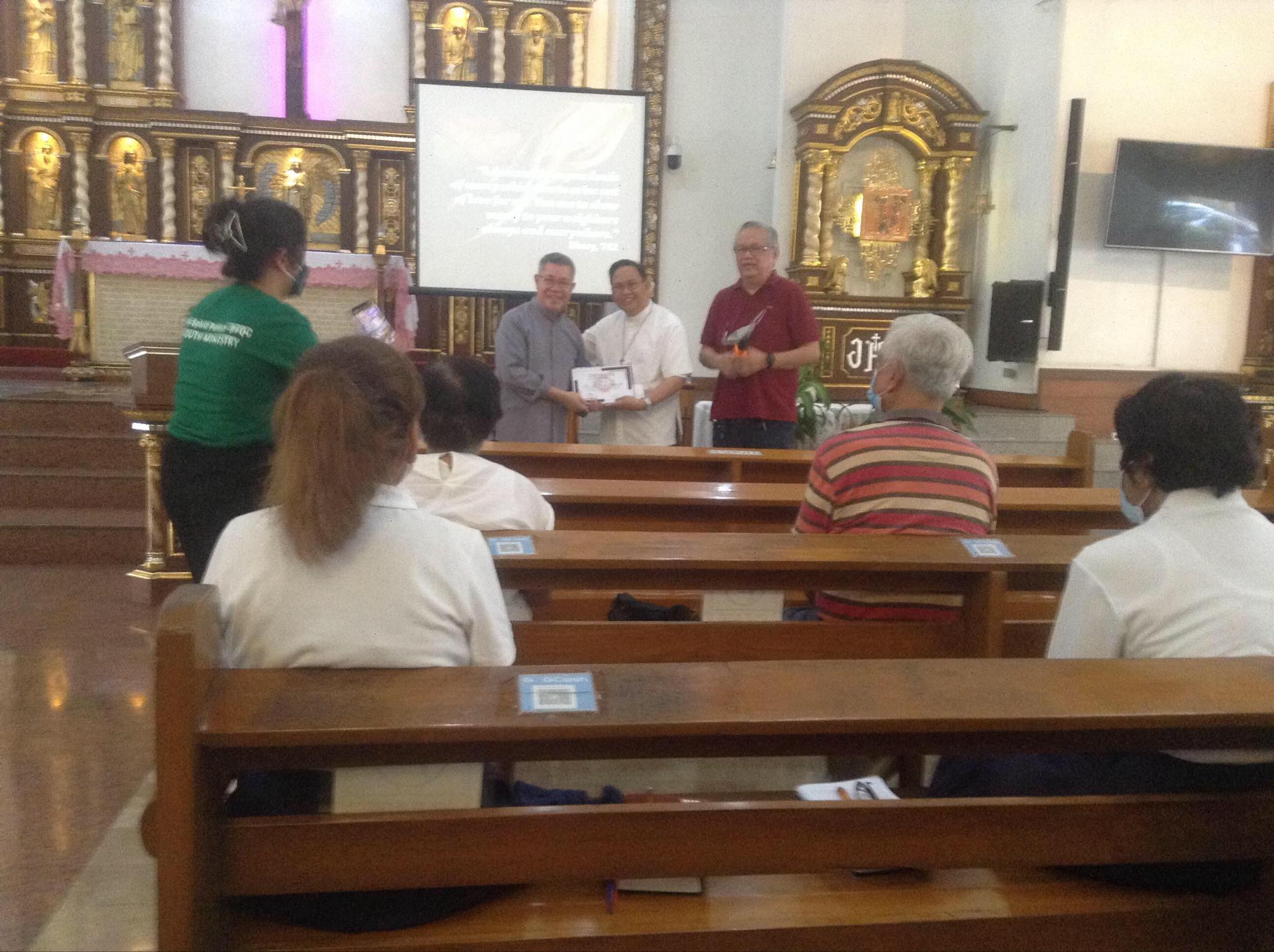
AS IF TO put the congregation at ease, Fr. Abe informed them that (their parish priest) Fr. Mar is now out of ICU and in a regular room. He still cannot speak, only wave, so asked the faithful to keep on praying for him. Then he proceeded to introduce the speaker as someone who has just returned from Rome, is from the Society of St. Paul (SSP) and currently Provincial Superior of the Pauline Fathers.
Fr. Abe needed no embellishments for his preface. As soon as Fr. Mario got hold of the mic, the self-confessed Liturgist admitted to praying that he does not get lost in coming to the recollection venue; his quick answer was: “Talagang ganyan pag makasalanan ang iyong pupuntahan.” Clearly, the initial round of laughter welcomed the clergy.
Then he shared that he got the inspiration of his talk from an old poet who exclaimed his talk title (made more popular by the eponymous kundiman “Ikaw,” which used the same title as its first line).
He segued into the strange description of Lent by the church as a joyful season, but which forbade “makukulay na bulaklak,” loud music, the singing of “alleluia” and “gloria,” and covered the statues of saints in lilac. Short of saying the prohibitions were in direct contrast to the season’s description.
He continued by saying that the Ash Wednesday start of Lent explains the reason of the celebration, mentioning Moses as getting attracted to Mt. Sinai so much so that he ascended it ultimately and encountered the burning bush. There, God made him remove his sandals because he was on holy ground. And the priest asked his audience why. As he expected, no one could answer the question, which was his cue to provide it: the moment Moses removed his sandals, he touched soil, where he came from. And he showed the biblical verse on man coming from dust (Gen 2:7).
Qualifying that, while it is true that we came from dust, “alabok lang,” yet we are “wangis sa Diyos.” Dust, therefore, that is some kind of wonderful.
Then he recalled that when he was on a mission to say Mass in a 2-hectare Muslim village in Mindanao, he was met by people with armalites and a caliber 45. But his anxiety was disarmed by the Datu who, in greeting him, touched his breast as though saying, God in him welcomes the God in the priest.
And he underscored the gesture with John 3:16, where the verbs love and give cannot exist, with one without the other. What I recall about the instances he cited about giving out of one’s surplus, which cracked me up and everybody else, is an outreach program on the mountains where a boy was wearing a bonnet which turned out to be half of a bra, an old man in a coat topping a g-string, and a grandma in a wedding gown. Dressed to the teeth for a dole-out.
Obviously, he had a huge bag of jokes. In an ecumenical conference on the bible, the security guard was grilling everyone on their way in as to which denomination they belonged and, by that token, imposed the “no id, no entry” rule, the grill being the drill. The first entrant the guard encountered was a member of the INC who, when asked by the guard to quote a bible verse, had no problem at all. He was followed by a rep from Ang Dating Daan, and the same thing happened. Then came a Catholic man. The guard asked him a series of biblical questions which perplexed the man and convinced the guard he was, indeed, a Catholic. The snickers that followed were cautious.
In 2015, when Mt. Pinatubo erupted and a large part of Luzon was covered in lahar, he joined a group of missionaries climb up the mountains where the Aetas where not reached by government help. That outreach made him realize that even the Aeta kids did not like sardines for they made pull toys out of the many canned fish they brought with them. I had to ask Sr. Rogelon beside me what made the audience laugh.
He also remembered an animated film which contended in the Oscars. It was about a man with a cane, who got on a bus and, since his ticket didn’t have a corresponding seat, held onto a post. A lady next to him offered the seat she was occupying. He declined, saying his ticket didn’t correspond to that seat, and that it was hers. How does he know, she countered, if she was occupying the wrong seat. Besides, she wouldn’t mind if he took it, wouldn’t tell, and insisted he take the seat. He could no longer resist the offer when the lady stood up and took the post he was holding onto. The bus came to a stop and, before the lady disembarked, groped for her crutches in the overhead compartment. With hung jaws, the man saw the number corresponding to the seat the lady gave him. His audience was not laughing. Like me, they took time to digest the awesome story of giving they just heard.
To probably bring us all back to earth, Fr. Mario underscored that what makes our God a real lover is that, like the lady on the bus, He is an incredible giver. Further illustrating that with Wisdom 11:23, that His forgiveness goes ahead of our asking. Phil 2:6-8 confirms that He didn’t have to die but He did.
Rom 5:7-8 states that, while we sinned, He died for us, that He could’ve stopped the dastardly act but if He did that, men would not know His love. Which set the tone for his Mel Gibson portion, “Passion of the Christ.” He called the passion of God a Mary film, an eye film, which made Mary and her eyes the focus of the film. That the camera, after panning the various torture instruments, looks at the viewers, and silently asks, “Hanggang saan pa ang kailangang gawin ng Anak ko?”
Taxes make men unfree, was his next topic, which brought us to Zaccheus, the short and rejected publican who, because of his size and stature, had to climb a tree to catch a glimpse of Christ. He was rewarded in his struggle when Jesus looked up to find him on the tree, and asked him to come down, that He may eat with him, an outcast! Unthinkable, yet because of Christ’s revolutionary ideas, Zaccheus attained a different reputation, more so when he wrote off the debts many owed him. This was so because, according to Ez 33:11, the Lord takes no pleasure in the death of the wicked; but that the wicked turn from his way and live.
The Gospel proclaims that sin is the refusal to love and be loved back, which is tantamount to the rejection of God. Which boggles the mind if we believe that from being a Son of God, Jesus, out of His love of and obedience to the Father, emptied Himself to become the Son of Man.
Pasyon, therefore, is not pasakit kay, but pag-ibig ni, Kristo.
On one hand, the Pope said that to live the holy week, the logic of love is gift of self.
On the other hand, Padre Pio was quoted as saying that: “It’s not easy to go through His death again.” alluding to the gruesome Passion movie.
Praising Mary’s silent suffering as opposed to our women of today who, when angry, are not only hysterical but also historical.
Because, unlike Mary, they did not know that one cannot negotiate the way of the cross.
He was sober when he shared that when Queen Elizabeth was buried, the Bishop called her by first name. Gone were the crown, scepter, throne, and all the mundane trimmings of monarchy. It was back to the basics.
And slowly inched towards the end of his piece by describing, in beautiful array, justice, mercy, and grace. The first is when you get what you deserve. The second is when you do not get what you deserve. And the third is when you get what you do not deserve. All because God is wonderful. And wraps them up with which is why Lent is joyful.
As a last question, he asked what Jesus means. A nun almost got it when she said “Savior.” The answer should have been “God saves.”
And he shared the controversial entries of Faustina’s diary, which almost hindered her becoming a saint. Foremost of these was her claims that: (research mine) (1) the promise Jesus allegedly made of an extraordinary grace offered to communicants in a state of grace on Divine Mercy Sunday, “the complete remission of sins and punishment” (Diary, 699) cannot be harmonized with the Catholic understanding of the sacraments in general, or of the conditions for obtaining divine forgiveness in particular; and (2) that we cannot offer the “divinity” of Jesus Christ to the Father in the Chaplet. To this, St. Thomas Aquinas states clearly, “Moreover, not only are all the other sacraments ordered toward the Eucharist, but they produce their proper grace only in virtue of their relationship to the Eucharist. The Eucharist alone has of itself the power to confer grace, while the other sacraments confer grace only in virtue of the desire (votum) which their recipients have of receiving the Eucharist also.” (ST, III, 79, I)
Perhaps no one has done it better than St. John Paul II, in the homily that he delivered at her tomb in Lagiewniki, Poland on June 7, 1997: “There is nothing that man needs more than Divine Mercy – that love which is benevolent, which is compassionate, which raises man above his weakness to the infinite heights of the holiness of God. In this place we become particularly aware of this. From here, in fact, went out the message of Divine Mercy that Christ Himself chose to pass on to our generation through [St.] Faustina. And it is a message that is clear and understandable for everyone. Anyone can come here, look at this image of the merciful Jesus, His Heart radiating grace, and hear in the depths of his own soul what [St.] Faustina heard: “Fear nothing. I am with you always.” And if this person responds with a sincere heart, “Jesus, I trust in You,” he will find comfort in all his anxieties and fears. In this “dialogue of abandonment,” there is established between a soul and Christ a special bond that sets love free.
Tao, masdan ang ginawa ng pag-ibig ni Kristo.
Amen.


